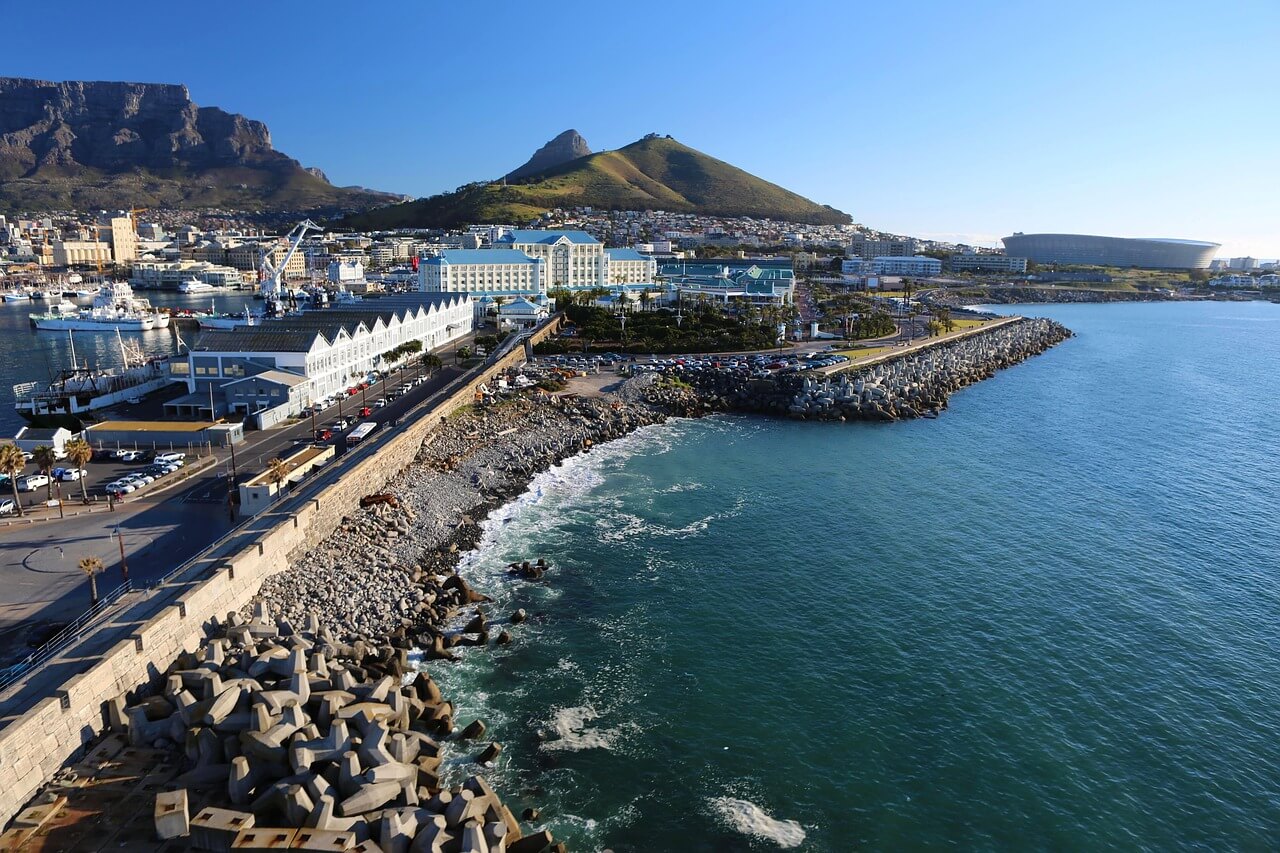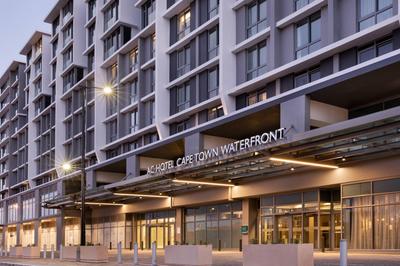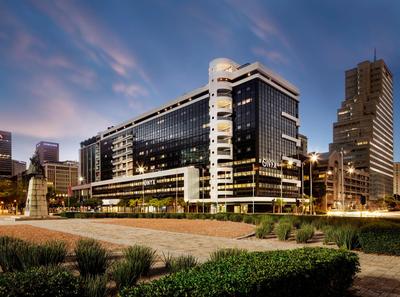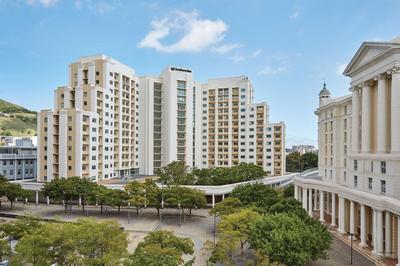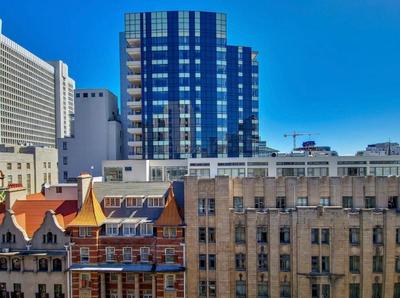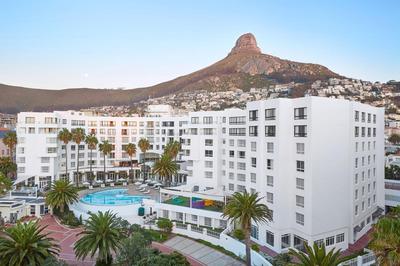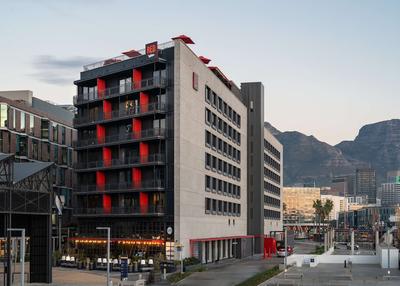When to visit Cape Town?
Cape Town, with its stunning landscapes and vibrant culture, has a temperate Mediterranean climate that influences its tourist seasons significantly. The city is best visited in the summer months, from December to February, when the weather is warm and sunny, making it perfect for beach outings and outdoor activities. The average high temperature climbs to around 28°C (82°F) during these months, attracting visitors to iconic spots like the V&A Waterfront and Clifton Beaches.
Spring, from September to November, is another fantastic time to visit as temperatures are mild, ranging from 18°C to 25°C (64°F to 77°F). This season showcases the blooming of wildflowers in the nearby Cape Floral Region, an UNESCO World Heritage site, and offers great conditions for hiking Table Mountain and exploring the Cape Winelands.
Autumn, from March to May, is equally delightful, with pleasant weather and fewer tourists. Ideal for those who want to enjoy city tours, wine tastings, and the pleasant ambiance of outdoor cafes, you’ll find temperatures fluctuating between 15°C and 25°C (59°F to 77°F).
Winter months, from June to August, see cooler temperatures, averaging between 7°C and 18°C (45°F to 64°F). While winter brings more rain, it also sees fewer tourists, making it a good time to explore museums and enjoy warm hospitality in local restaurants. Additionally, this is the best time for whale watching along the coast.
How to get to Cape Town?
Cape Town is well-connected and provides various options for travel to the city, whether you're coming from within South Africa or abroad. The main gateway is the Cape Town International Airport (CPT), which is about 20 kilometers (12 miles) from the city center. Numerous domestic and international airlines operate here, making it easy to find direct flights from major global hubs.
Arriving by bus is also a popular option, with long-distance bus companies like Greyhound and Intercape serving routes from cities such as Johannesburg and Durban. Buses typically take around 18-24 hours, depending on your departure city, and they drop passengers at central terminals in Cape Town.
If you're considering the train, the intercity service from Johannesburg to Cape Town operates a few times a week, allowing travelers to enjoy scenic views along the way. While train travel might take longer (around 26 hours), it’s a unique experience worth considering.
Traveling by car is another convenient option, especially for those wanting to explore the surrounding areas. The N1 and N2 highways connect Cape Town to other regions, with well-maintained roads and frequent service stations along the way. The drive from Johannesburg takes roughly 14 hours, while a shorter trip from the Garden Route area lasts about 5 hours.
Tourist activities in Cape Town
Cape Town is a city rich in activities and experiences that cater to all interests. From day trips to outdoor adventures, there's something for everyone. Start your exploration with the iconic Table Mountain, where hiking or taking the cable car provides breathtaking panoramic views of the city. The Kirstenbosch National Botanical Garden offers a serene escape, featuring indigenous plants and stunning mountain vistas.
For a taste of local culture, visit the District Six Museum, which tells the poignant story of this vibrant community. If you're a shopping enthusiast, the V&A Waterfront combines retail therapy with excellent dining options, plus a chance to appreciate its historical significance.
Nightlife in Cape Town is vibrant, with places like Long Street buzzing with energy. Bars and clubs offer a mix of local live music and DJ sets, ensuring that you experience the rhythm of the city well into the night.
Don't forget to embrace the stunning coastline by visiting Cape Point or taking a scenic drive along Chapman's Peak. You can also indulge in local cuisine in the city's many restaurants that highlight the diverse culinary scene, from street food to fine dining.
Events and festivals
Cape Town hosts a vibrant array of events and festivals throughout the year, reflecting its diverse culture and community spirit. One of the most significant events is the Cape Town International Jazz Festival, usually held in March or April, drawing top global jazz artists and local talent to perform in various venues across the city.
The annual South African Cheese Festival occurs in late April and showcases a wide variety of local cheeses, along with artisan products. It’s the perfect setting for food lovers to mingle and savor delicious fare.
Cape Town Pride, which takes place in February, highlights the city’s commitment to inclusivity and diversity, featuring a colorful parade and a series of parties and cultural events that celebrate the LGBTQ community.
During the summer months, the Cape Town Minstrel Carnival, also known as Kaapse Klopse, brings joyous music and vibrant costumes to the streets on January 2, making for an unforgettable experience. The annual Woza Weekend, held in September, is a celebration of arts, culture, and creativity, with various showcases throughout the city.
These cultural events are just a glimpse into what Cape Town offers, making every visit a unique experience depending on the time of year you arrive.
Family and kids activities
Cape Town is a family-friendly destination stocked with activities that kids of all ages will enjoy. Start at the Two Oceans Aquarium located at the V&A Waterfront, where children can marvel at diverse marine life, including sharks and colorful fish. Interactive exhibits make it an educational experience as well.
Kirstenbosch National Botanical Garden offers child-friendly trails and picnic spots, ideal for families wanting a day out in nature. The playground here is a bonus for little ones, making it a perfect outing.
For an adventurous day, visit the Cape Town Science Centre, where hands-on experiments and exhibitions make learning fun. The Planetarium is an added treat, sparking awe in children keen on astronomy.
The Playdate Superpark is another favorite; located in the V&A Waterfront, it features various fun zones, such as obstacle courses and ball pits, ensuring children are entertained while parents can relax nearby.
Don’t miss out on a trip to the iconic beaches of Camps Bay or Muizenberg, where kids can build sandcastles or enjoy a refreshing swim with parental supervision. Guiding family activities in Cape Town allows for memorable experiences that cater to every age group!
What to see in Cape Town?
Cape Town is brimming with attractions, making it a must-visit city. Here’s a list of places that should not be missed:
- Table Mountain: A natural wonder and the city’s iconic landmark, offering spectacular views and hiking routes.
- Kirstenbosch National Botanical Garden: This stunning garden showcases the country's diverse flora and is perfect for a relaxing day outdoors.
- Robben Island: A historic site where Nelson Mandela was imprisoned, accessible by ferry for a profound glimpse into South Africa's history.
- The V&A Waterfront: A bustling hub with shops, restaurants, and entertainment, including the famous aquarium.
- Boulders Beach: Home to a colony of African penguins, offering a rare chance to watch these adorable creatures up close.
- Castle of Good Hope: The oldest surviving colonial building in South Africa, showcasing the country’s military history.
- Bo-Kaap: Famous for its colorful houses and cobblestone streets, this district signifies Cape Malay culture and offers fantastic photo opportunities.
- Cape Point: The dramatic meeting point of the Atlantic and Indian oceans, showcasing breathtaking views and hiking trails.
These sites encapsulate the essence of Cape Town, ensuring that visitors have a fulfilling experience amidst its rich history and natural beauty.
Accommodation in Cape Town
Cape Town offers a wide range of accommodation options, catering to all budgets and preferences. Upscale hotels, boutique stays, and budget-friendly hostels can all be found throughout the city, each providing a unique experience.
The V&A Waterfront is popular for luxury seekers, featuring stunning hotels like the One&Only Cape Town with its renowned spa and restaurants. For a more intimate experience, check out boutique hotels in the city center or the charming neighborhood of Green Point, which are both vibrant and convenient.
If you're traveling on a budget, consider hostels in areas like Woodstock or Long Street. These accommodations foster a social atmosphere, making it easy to meet fellow travelers, while still being close to many attractions.
For those who prefer self-catering, numerous serviced apartments can be found, especially near Camps Bay and Hout Bay, enabling a comfortable stay at family-friendly prices. Note that accommodation prices fluctuate according to the season, with rates being considerably higher during the summer months and major events.
Choosing the right neighborhood can significantly enhance your stay; each area has its unique vibe, whether you enjoy the hustle and bustle of the city center or a more laid-back beachside atmosphere.
Important numbers and information
- Emergency Numbers: Police: 10111, Ambulance: 10177, Fire: 10177
- Tourist Information Centers: Cape Town Tourism Offices located at the V&A Waterfront and Strand Street.
- Main Hospitals: Groote Schuur Hospital, Netcare Christiaan Barnard Memorial Hospital.
- Airport Contacts: Cape Town International Airport: +27 21 937 1200.
- Public Transport Information: MyCiTi Bus route information available at myciti.org.za.
- Popular Taxi Apps: Bolt, Uber.
- Currency: South African Rand (ZAR).
- Payment Methods: Cash, credit/debit cards widely accepted; ATMs available throughout the city.
Where to eat?
When it comes to dining, Cape Town boasts a rich culinary scene influenced by various cultures, making it a food lover's paradise. Don’t miss trying local specialties such as braai (barbecue), bobotie (a spiced minced meat dish), and biltong (dried cured meat).
The V&A Waterfront is a great starting point for diverse restaurant options, ranging from casual eateries to high-end dining. Here, you can indulge in fresh seafood and gourmet meals while enjoying waterfront views. For a truly local experience, make your way to the bustling neighborhood markets, like the Neighbourgoods Market in Woodstock, where you can find an array of street food made by local artisans.
Camps Bay and Clifton are also famous for their beachfront dining options with breathtaking sunset views. Prices vary widely depending on the setting, with street food starting from as little as R20, while fine dining experiences can go up to R1,500 per person.
Vegetarians and vegans aren’t left out either—many establishments focus on innovative plant-based dishes that are not only healthy but bursting with flavor. The food scene reflects Cape Town’s diverse and dynamic culture, ensuring that every meal is a delightful experience.
Nightlife – where to go out?
The nightlife in Cape Town is as vibrant and diverse as its culture, offering something for everyone. Head to Long Street, the epicenter of the city’s nightlife, filled with bars, pubs, and clubs that stay open late into the night. Popular spots like The Waiting Room serve exceptional cocktails and feature local live music, making it a hotspot for a fun night out.
For dance lovers, Fiction is a trendy club that features both local and international DJs, with various music genres ensuring everyone finds their groove. If you're after a sophisticated setting, Themdown provides an intimate atmosphere following its chic design and selection of fine wines and cocktails.
The energy shifts slightly in areas like Camps Bay where beachfront bars and cafes turn into lively hangouts as the sun goes down, providing stunning views along with a casual vibe for those preferring a laid-back evening.
Cape Town also hosts numerous pop-up events and parties throughout the year, ensuring there’s always something fresh to experience. Whether you're dancing the night away or savoring drinks with friends, the city's nightlife guarantees unforgettable evenings!
Transport and taxis
Cape Town offers several public transport options, making it relatively easy to navigate the city and its surrounding areas. The MyCiTi bus service is a reliable way to travel, connecting major attractions, the airport, and neighborhoods. Fares vary depending on your route, so be sure to purchase a MyCiTi card for convenience, with trips costing around R11 to R35.
Another option is the Metrorail train service, which operates from various suburbs towards the city. However, safety can be a concern during nighttime travel, so it's advisable to plan accordingly.
For a more direct and flexible mode of transport, taxis and rideshare services like Uber and Bolt are widely used and can be a convenient choice, especially at night. Always choose reputable taxi services and ensure they are metered.
Safety tips include avoiding empty trains, keeping your belongings close, and if you're traveling after dark, it’s best to opt for a taxi or rideshare service rather than public transport for enhanced safety.
- MyCiTi Buses: Inexpensive, reliable buses covering major areas.
- Metrorail Trains: Scenic but safety-conscious travel; avoid empty carriages.
- Taxis: Metered and readily available; use reputable services.
Parking and public garages
Parking in Cape Town varies greatly depending on the area you're visiting. The city center has several parking garages that offer hourly rates, while street parking may be available but often requires payment through a parking meter. It's essential to check the signs closely to avoid fines.
In popular tourist areas like V&A Waterfront or Camps Bay, parking can be higher, but many garages offer secure parking options, especially for longer visits. Rates typically range from R15 to R30 per hour, with the possibility of daily rates that tend to be more economical.
When driving in Cape Town, always keep your car locked and valuables out of sight to deter theft. Securing parking in well-lit and busy areas at night is also advisable.
If you are considering using public transport, especially after dark, it is often more convenient and safer than trying to find parking in the busy areas of the city.
Surroundings of Cape Town
Cape Town's surroundings offer an abundance of day-trip opportunities perfect for exploring the breathtaking beauty of the Western Cape. Just a short drive away is the Cape Winelands, home to world-renowned vineyards and charming towns like Stellenbosch and Franschhoek. Wine tasting and cellar tours make this a delightful excursion for lovers of fine beverages.
The Cape Peninsula is another must-visit destination, featuring the scenic Chapman's Peak Drive. Stop at Cape Point and the iconic Cape of Good Hope, where you can experience dramatic coastal views and partake in hiking trails within the nature reserve.
In the opposite direction, the picturesque town of Hermanus is famous for whale watching during the Southern Right whale season from June to November. Whether on foot along the coastal path or from a boat, it's an unforgettable experience.
For those seeking outdoor adventures, the Cederberg Mountains offers hiking, rock climbing, and stunning natural scenery. It’s about a two-hour drive from Cape Town and is ideal for those wanting to escape the city for a day of adventure.
Exploring these nearby attractions allows a deeper appreciation of South Africa's natural beauty, making your trip to Cape Town all the more enriching.
